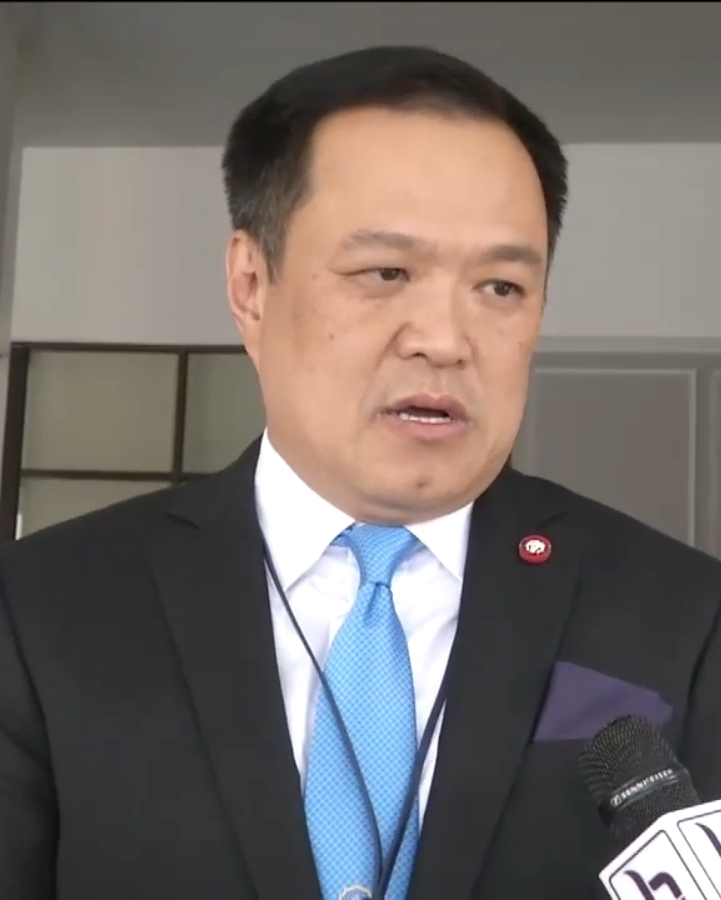Amid political turmoil—including the sacking of three prime ministers in the past two years, the downfall of its most dominant political dynasties, and instability sparked by an emerging border war with Cambodia—Thailand has turned to one man to lead the nation: Anutin Charnvirakul. As the 58-year-old leader of the Bhumjaithai Party, Anutin signed an agreement with the Thai People’s Party on September 3 to create a minority coalition government. With this newfound support, he won the parliamentary vote on September 3 with 311 out of 492, according to the South China Morning Post.
Despite the apparent landslide victory, Anutin has his work cut out for him; Thailand faces increasingly worrisome political and economic problems that threaten to undo its hard-earned stability. Among them are the aftermath of a July border conflict with Cambodia, lagging economic growth amid months of political uncertainty, and his precarious position in power.
Even as Asia’s second-largest economy, last year, “Thailand’s GDP growth of 2.5% lagged its regional peers,” according to Reuters. Key industries such as automotive manufacturing and tourism are under strain, while household debt continues to rise and investment has slowed significantly since 2024.
In fact, the Bangkok Post reports that among Asia-Pacific countries surveyed by APAC Consumer Navigator in the second quarter of 2025, “71% of [Thai] survey respondents suggest the economy is struggling.” In addition, 56% of respondents believed conditions would worsen over the next year, “marking the most pessimistic outlook among the markets surveyed.”
Furthermore, Thailand faces a challenging geopolitical position. Rising to power just six weeks after a short-lived conflict with Cambodia ended in the deaths of 43 people and the displacement of tens of thousands, Anutin must deal with the aftermath. The dispute over claims to land and ancient Hindu temples along their shared border has not yet been fully resolved. While Anutin has stated that his government “will take peaceful measures to resolve the ongoing Thai-Cambodian dispute with a firm commitment to mitigating any further Thai casualties,” as reported by The Diplomat, much work remains unfinished.
However, his new government has already brought positive change: joint mine removal operations, the reopening of key trade routes, and mutual disarmament at the border have already begun.
To make matters more pressing, Anutin only has four months until he must dissolve the Thai Parliament and call for new elections. As Al Jazeera mentions, this timeline gives him little time to enact lasting and worthwhile policies. While short-term decisions, such as appointing experienced officials to cabinet positions to increase citizen confidence in the Thai government, he will struggle to accomplish more in fields such as monetary policy before the next election. Anutin’s alliance with the People’s Party to form a minority government is temporary, and he will rely on decisive action over the next four months to validate his administration’s continued governance over Thailand.
Anutin himself represents the complex political systems behind most governmentsーeven America’s. His years-long career as a politician, cabinet member, and advisor in the Thai government, as well as his position at the head of Thailand’s conservative-royalist movement, are a testament to his shrewd political ability. His maneuvering into power past the dominant Shinawatra clan, which leads the Pheu Thai Party, is another such example.
Amid Thailand’s many emerging problems that threaten the stability and legitimacy of its political and economic systems, its people demand capable leaders. If his ambition and decisiveness match the necessary capability his people sorely need, Anutin might be the perfect man for the job. All that Thailand and the rest of the world can do for now is wait and watch to see what progress Anutin makes in the next four months. With the hopes and lives of tens of millions on his shoulders, all eyes in Southeast Asia are on Thailand’s newest prime minister.














































































































































